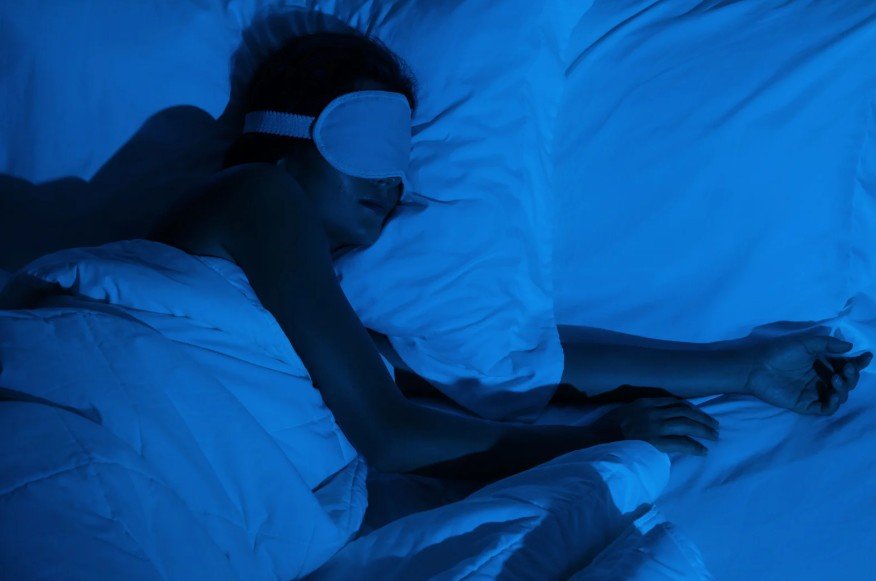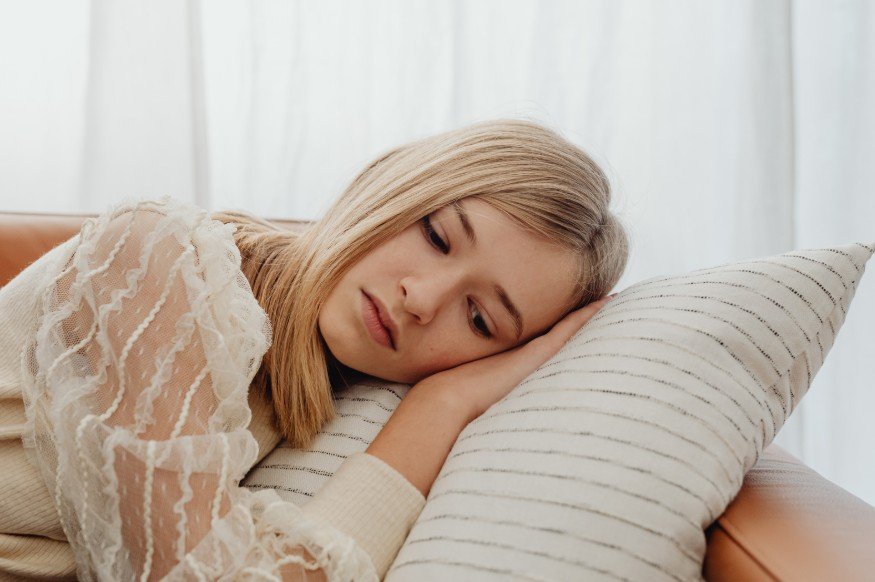Sleep is not a luxury—it’s a fundamental pillar of mental health. Yet millions of Americans struggle with insomnia and sleep disturbances that significantly impact their emotional wellbeing, cognitive function, and overall quality of life. At East Coast Telepsychiatry, we understand that addressing sleep problems is often essential to treating sleep and mental health conditions effectively.
Understanding the Sleep-Mental Health Connection
The relationship between sleep and mental health is bidirectional and powerful. Poor sleep can trigger or worsen mental health conditions, while mental health challenges often disrupt sleep patterns. Research shows that individuals with insomnia are ten times more likely to develop depression and 17 times more likely to experience clinically significant anxiety.
When we don’t get adequate sleep, our brain’s emotional regulation centers become impaired. Studies using brain imaging reveal that sleep deprivation triggers a 60% amplification in amygdala reactivity—the brain region that processes emotions—while simultaneously reducing connectivity with the prefrontal cortex, which is responsible for rational thinking and impulse control. This neurological imbalance can lead to:
- Increased irritability and mood swings
- Heightened anxiety and worry
- Difficulty concentrating and making decisions
- Reduced stress tolerance
- Impaired memory consolidation
- Greater risk of depression and anxiety disorders
What Is Insomnia?
Insomnia is the most common sleep disorder, affecting approximately 30% of adults. It’s characterized by persistent difficulty falling asleep, staying asleep, or waking too early, despite having adequate opportunity for sleep. To be diagnosed with insomnia disorder, these symptoms must occur at least three nights per week for at least three months and cause significant distress or impairment in daily functioning.
Types of Insomnia
Acute Insomnia is short-term, often triggered by stress, life changes, or temporary circumstances. It typically resolves on its own once the stressor passes.
Chronic Insomnia persists for three months or longer and often becomes self-perpetuating. Many people with chronic insomnia develop anxiety about sleep itself, creating a vicious cycle of worry and wakefulness.
Comorbid Insomnia occurs alongside other conditions—whether medical issues like chronic pain or mental health disorders like depression, anxiety, PTSD, or bipolar disorder.

Better sleep begins with accessible online psychiatry services tailored to your mental health.
The First-Line Treatment: Cognitive Behavioral Therapy for Insomnia (CBT-I)
When it comes to treating chronic insomnia, medication isn’t the gold standard—Cognitive Behavioral Therapy for Insomnia (CBT-I) is. Major medical organizations, including the American College of Physicians and the American Academy of Sleep Medicine, recommend CBT-I as the first-line treatment for chronic insomnia in adults.
What Is CBT-I?
CBT-I is a structured, evidence-based program that addresses the thoughts, behaviors, and habits that prevent good sleep. Unlike sleeping pills, which provide only temporary relief and can lead to dependence, CBT-I produces lasting changes that continue to benefit patients long after treatment ends.
Core Components of CBT-I
1. Cognitive Therapy
This component identifies and challenges unhelpful beliefs about sleep. Many people with insomnia develop catastrophic thinking patterns: “If I don’t sleep tonight, I’ll be completely useless tomorrow” or “I’ll never get a good night’s sleep again.” CBT-I helps replace these thoughts with more realistic, helpful perspectives.
2. Sleep Restriction Therapy
Counterintuitively, this technique initially limits time in bed to match actual sleep time. By creating mild sleep deprivation, it increases sleep drive and helps consolidate sleep. As sleep efficiency improves, time in bed is gradually increased.
3. Stimulus Control
This technique rebuilds the association between bed and sleep. Key rules include:
- Go to bed only when sleepy
- Use the bed only for sleep and intimacy
- Leave the bedroom if unable to sleep after 20 minutes
- Wake up at the same time every day, regardless of sleep quality
- Avoid daytime napping
4. Relaxation Training
CBT-I teaches various relaxation techniques to reduce physical and mental arousal, including progressive muscle relaxation, deep breathing exercises, and mindfulness meditation.
5. Sleep Hygiene Education
While sleep hygiene alone rarely cures insomnia, it provides the foundation for healthy sleep when combined with other CBT-I components.
The Effectiveness of CBT-I
Research consistently demonstrates that CBT-I is highly effective:
- 70-80% of patients experience significant improvement
- Benefits persist long-term, unlike medication
- Reduces time to fall asleep by an average of 20-30 minutes
- Increases total sleep time
- Improves sleep quality and daytime functioning
- Often reduces or eliminates need for sleep medication
Essential Sleep Hygiene Practices
Sleep hygiene refers to the habits and environmental factors that promote consistent, quality sleep. While these practices alone may not resolve chronic insomnia, they create optimal conditions for restorative rest.
Optimize Your Sleep Environment
Temperature: Keep your bedroom cool, ideally between 60-67°F (15-19°C). Core body temperature naturally drops during sleep, and a cooler room facilitates this process.
Darkness: Use blackout curtains or an eye mask. Even small amounts of light can interfere with melatonin production.
Quiet: Minimize noise with earplugs, a white noise machine, or a fan. Consistent background noise can mask disruptive sounds.
Comfort: Invest in a supportive mattress and pillows. Replace your mattress every 7-10 years.
Establish a Consistent Sleep Schedule
Your body thrives on routine. Going to bed and waking up at the same time every day—yes, even on weekends—strengthens your circadian rhythm and improves sleep quality over time.
Be Strategic About Light Exposure
Morning sunlight is powerful for regulating your internal clock. Aim for 10-30 minutes of bright light exposure within an hour of waking.
Evening light should be dim. Blue light from screens suppresses melatonin production, so avoid phones, tablets, and computers for at least 1-2 hours before bed. If you must use devices, enable night mode or use blue-light-blocking glasses.
Watch Your Consumption
Caffeine has a half-life of 5-6 hours, meaning half the caffeine from your 3 PM coffee is still in your system at 9 PM. Avoid caffeine after early afternoon.
Alcohol may help you fall asleep initially but disrupts sleep architecture, particularly REM sleep, leading to fragmented, less restorative rest.
Large meals close to bedtime can cause discomfort and acid reflux. Finish eating 2-3 hours before sleep.
Fluids should be limited in the evening to minimize nighttime bathroom trips.
Create a Wind-Down Routine
Develop a relaxing pre-sleep ritual lasting 30-60 minutes. This signals your brain that it’s time to transition to sleep. Effective activities include:
- Reading a physical book
- Taking a warm bath (the subsequent drop in body temperature promotes sleep)
- Gentle stretching or yoga
- Journaling
- Listening to calm music
- Practicing meditation or deep breathing
Exercise Regularly—But Time It Right
Regular physical activity improves sleep quality and duration. However, vigorous exercise within 2-3 hours of bedtime can be stimulating. Morning or afternoon workouts are ideal for most people.
Manage Worry and Racing Thoughts
Keep a notepad by your bed for a “brain dump” of concerns, tasks, or ideas. This practice helps clear your mind and reassures you that nothing will be forgotten.
When Sleep Problems Signal a Deeper Issue
Sleep disruptions often accompany or signal mental health conditions such as:
Depression – Early awakening or excessive sleep
Anxiety Disorders – Difficulty falling asleep due to racing thoughts
Bipolar Disorder – Irregular sleep during mood episodes
PTSD – Nightmares and hypervigilance
ADHD – Inconsistent sleep patterns
Addressing underlying mental health issues through telehealth psychiatric treatment can significantly improve sleep.

Expert telehealth psychiatric treatment for better sleep and stronger mental health.
How East Coast Telepsychiatry Can Help
At East Coast Telepsychiatry, we provide affordable virtual psychiatry services designed to improve both sleep and mental health. Our licensed online psychiatrists offer:
Comprehensive Assessments – Identifying root causes of sleep problems
CBT-I Treatment – Delivered virtually, proven as effective as in-person sessions
Medication Management – When clinically appropriate
Treatment for Co-Occurring Conditions – Depression, anxiety, PTSD, ADHD, and more
Flexible Virtual Care – Accessible, confidential, and convenient
The Advantages of Addressing Sleep Through Telepsychiatry
Convenience: No travel time or waiting rooms. Sessions fit seamlessly into your daily routine.
Consistency: Regular, frequent check-ins are easier to maintain, which is crucial during the initial phases of CBT-I.
Comfort: Discussing sleep problems from your own environment can feel less intimidating and more natural.
Real-time guidance: Your provider can help you evaluate your actual sleep environment and offer immediate, personalized recommendations.
Comprehensive records: Sleep logs and tracking data can be easily shared and reviewed during virtual visits.
Taking the First Step Toward Better Sleep
If you’re struggling with insomnia or poor sleep quality, you don’t have to accept restless nights as your reality. Effective, evidence-based treatment is available—and it’s more accessible than ever through telepsychiatry.
Quality sleep is achievable, and the benefits extend far beyond feeling rested. Better sleep means:
- Improved mood and emotional resilience
- Sharper thinking and better decision-making
- Stronger relationships
- Enhanced physical health
- Greater productivity and life satisfaction
Don’t let another night of poor sleep steal your wellbeing. East Coast Telepsychiatry is here to help you reclaim restful, restorative sleep and improve your mental health.
Ready to sleep better and feel better? Contact East Coast Telepsychiatry today to schedule your initial consultation. Your journey to better sleep and improved mental health is just a video call away.
East Coast Telepsychiatry provides comprehensive psychiatric care through secure, HIPAA-compliant video sessions. Our board-certified providers specialize in treating sleep disorders, anxiety, depression, and a full range of mental health conditions. We accept most major insurance plans and serve patients across multiple states.
References and Further Reading
- American College of Physicians. (2016). Management of Chronic Insomnia Disorder in Adults: A Clinical Practice Guideline. Annals of Internal Medicine.
- Edinger, J.D., et al. (2021). Behavioral and psychological treatments for chronic insomnia disorder in adults: An American Academy of Sleep Medicine clinical practice guideline. Journal of Clinical Sleep Medicine, 17(2), 255-262.
- Taylor, D.J., et al. (2005). Epidemiology of insomnia, depression, and anxiety. Sleep, 28(11), 1457-1464.
- Roth, T. (2007). Insomnia: Definition, Prevalence, Etiology, and Consequences. Journal of Clinical Sleep Medicine, 3(5 Suppl), S7-10.
- Yoo, S.S., et al. (2007). The human emotional brain without sleep—a prefrontal amygdala disconnect. Current Biology, 17(20), R877-878.
- Sleep Foundation. (2024). Cognitive Behavioral Therapy for Insomnia (CBT-I).
- Neckelmann, D., et al. (2007). Chronic insomnia as a risk factor for developing anxiety and depression. Sleep, 30(7), 873-880.
- Morin, C.M., et al. (2018). Increasing access to and utilization of cognitive behavioral therapy for insomnia (CBT-I). Journal of General Internal Medicine, 33(6), 955-962.
